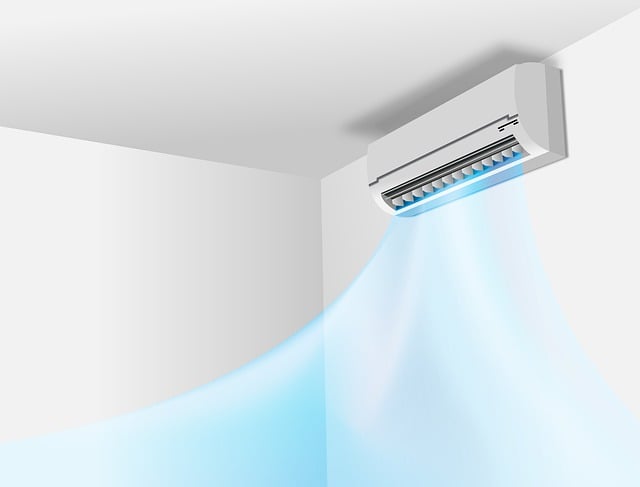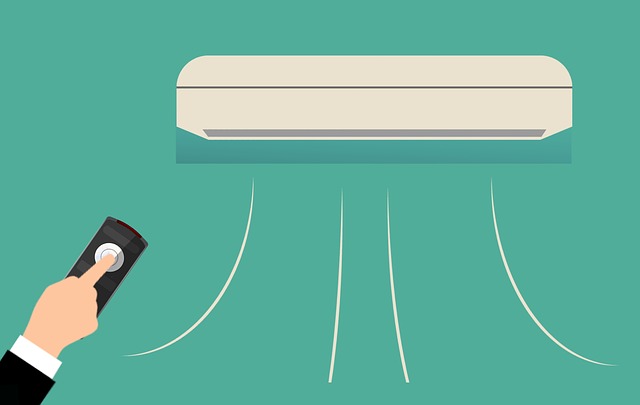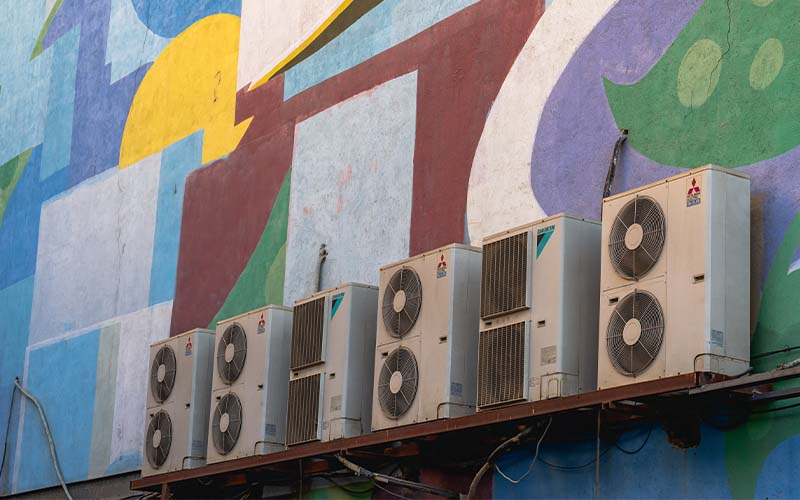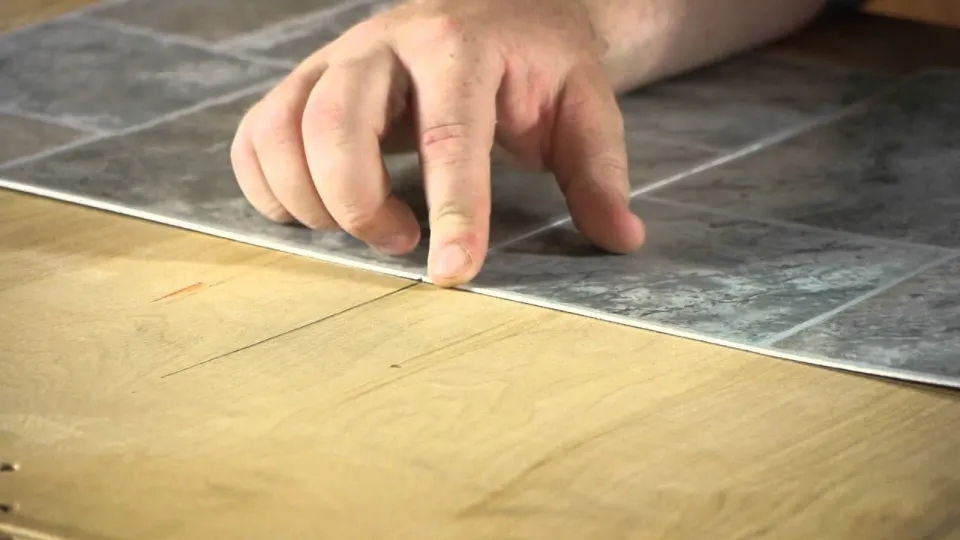Continue now to learn how long does an air conditioner last—and why, if your old system fails, you may view it as a new opportunity.
Typically, air conditioners have a 15–30 year lifespan. Even the most effective HVAC systems that are kept up to date over time will eventually fail.
Due to this, it’s crucial that you understand how long air conditioners last, what factors affect their lifespan, and how to spot the warning signs that it’s time to replace the entire system.
In light of the foregoing, let’s examine each of these queries in turn, beginning with the one that led you here.
How Long Do Air Conditioners Last?
As was previously mentioned, air conditioners typically last 15 to 30 years.
“But what a wide range that is!” you say.
It is, and a lot of it is based on your location. Most of it actually does.
If you reside in a region of the country with more extreme weather, such as Alabama. What? Alabama? Yup, it’s rough. For eight years, I lived in the Florida Panhandle, which could just as easily have been Alabama.
Constant rain, the possibility of ice, humidity, and salt air if you live close to the gulf. Your air conditioner will be beaten by all of these circumstances, shortening its lifespan.
However, arid, hot locations like Texas and Nevada are just as vulnerable. The need for air conditioners, not the weather.
You run your air conditioning unit nonstop for months on end if you live in a climate where it’s practically a survival tool. Compared to our hometown of San Diego, this depletes your system more quickly.
San Diego does experience summer heat, but the majority of the year is nearly perfect with only July and August experiencing the most extreme heat.
Your air conditioner’s lifespan is affected by additional factors, which we’ll talk about shortly.
However, if you take good care of your equipment and don’t live in a particularly harsh climate, it’s not unusual for your air conditioner to last 30 years or longer.
How Much Longer Will My Air Conditioner Last?
“Okay, so in general air conditioners last 15-30 years, but long will mine last?“
You must complete a brief quiz before I can respond to that question. Answer with a yes or no, and keep track of the totals in your head.
- Do you have a name brand air conditioner, such as Trane, Goodman, Lennox, or Carrier?
- Did a qualified expert buy and set up the equipment?
- Does the unit have enough breathing room (12 to 18 inches on all sides)?
- Do you reside in a climate that is moderate?
- Do you give your air conditioner routine preventative maintenance?
- Do you reside inland and far from the sea?
- Is your HVAC system weather-sealed, if the answer to question six is no?
- Do you only turn on your air conditioner during the most dire circumstances?
The more questions you answered “YES” to, the more likely your unit is to last longer. The more questions you said “NO” to, the sooner you’re likely to need a replacement.
Why is that?
Your air conditioner is a mechanical device, and like any other thing we own, it starts to wear out as soon as we buy it.
While there are steps you can take to lengthen the life of your air conditioner, you must remember that the better you take care of your air conditioner, the better it will take care of you.
You change your car’s oil on a regular basis, visit the dentist for a checkup every six months, and see the doctor once a year (or you should).
Your air conditioner needs to be maintained in the same way that we take care of our vehicles and bodies to make them last longer.

The Benefits of Replacing Versus Repairing the AC
Numerous issues that the typical homeowner might not necessarily notice can affect air conditioning systems. For instance, the majority of cooling systems are made to cycle through different operating states, supplying the living spaces with conditioned air only occasionally. A system component may be compromised if the cycles between those events are unusually short or long. Depending on the issue (“and what it would cost to fix,” You might decide to upgrade rather than repair, Kenyon continues. In fact, far from being a sunk cost, a “new high-efficiency air-conditioning system can save you money in the long run,” according to Kenyon.
Manufacturers have introduced fleets of HVAC equipment that boasts superior energy efficiency in recent years as a result of rising energy prices and growing environmental concerns. Between the latest technology and that of even 10 years ago, “there’s a night-and-day difference,” in terms of running costs, Kenyon says. In fact, for its ability to run up the monthly utility bill, Kenyon says, “often the most expensive system a homeowner can choose is the one already in the home.” In other words, it eventually costs more to maintain an old, ineffective system than it does to replace it with a new, effective one.
The best AC systems available today manage to produce better results overall even though they use less energy (and less money) to power their typical output. For one thing, “you get less obtrusive air conditioning” with more recently manufactured models, thanks to a broad push in the industry toward quieter functioning. Another is that HVAC filtration has come a long way over time, enabling climate control systems to work not against but in favor of healthy living and indoor air quality. Last but not least, modern air conditioning systems often produce more comfortable spaces because they are designed to combat humidity more effectively.
In conclusion, there are valid reasons to welcome rather than fear the possibility of your air conditioner breaking down.
Read about
Factors Impacting Your Air Conditioners Useful Life
When discussing how long AC units last, it’s important to consider when their useful lives end. Like your family car, HVAC systems require regular tune-ups, minor repairs, and part replacement. One homeowner may believe that it’s time for a replacement when a unit stops working for the first time and is no longer covered by warranty. Another person might think about performing a number of costly repairs to maintain an existing system. The AC unit’s lifespan is therefore influenced by the repair or replacement decision.
Beyond that, factors that play into the lifespan of air conditioners include:
- Installation quality and proper sizing
- Personal comfort preferences, thermostat settings, and system wear and tear
- Climate issues such as high humidity
- Air quality issues such as salty sea air or other airborne corrosives
- Regular maintenance
Rate of Use
A better question might be, “how long do air conditioners last in your part of the country?” Naturally, an air conditioner that is used more frequently than average will show more signs of wear and tear than one that is used less frequently. Take, for instance, two identical air conditioners and place them in two different regions of the nation. The number of start/stop cycles and operating hours for an AC system in a northern climate with moderately warm summers will likely be lower than for a unit installed in a warmer and more humid environment. Additionally, individual taste can be important. If a family leaves their thermostat set at 700 F throughout the summer, their air conditioner is likely to run much more frequently than the family across the street who leaves their thermostat set at 780 F. The difference in usage is accentuated if either of those examples is extended over a 15-year period while having similar maintenance schedules.
Level of Upkeep
Your air conditioner can last longer with some maintenance, just like any other piece of equipment. For instance, when was the last time a trained HVAC technician was dispatched to tune up your AC system? Have you regularly checked or changed the air filter in the system? Are there any leaves, mulch, dirt, or other objects in the outdoor unit? You could learn something about how well you are maintaining your air conditioning system from the answers to these questions.
As would be expected, routine maintenance is advised to increase the cooling system’s energy efficiency and lifespan. The majority of homeowners are capable of inspecting, cleaning, or replacing an air filter. However, regular tune-ups performed by an HVAC expert will go further. They are able to clean and examine parts like the condensate drains, fan and motor assemblies, evaporator and condenser coils, and compressor. Additionally, they can make minor adjustments and repairs that can enhance performance and possibly aid in averting more serious problems and exorbitant repair costs in the future.
Exposure to the Elements
A HVAC system’s outdoor condensing unit is constantly exposed to the elements because it is outside. It could be extremely harsh out there, depending on your climate and the local air quality. For instance, if you reside close to the coast, the condensing coil in the outdoor unit may experience damage from the salty sea air. Even though your air conditioner was built to withstand the elements, it is known that its lifespan can be impacted by the length of time it is exposed to the elements and the severity of the weather.
Have the coil cleaned routinely to prevent the buildup of dirt and potentially corrosive debris to protect and help extend the life of your outdoor air conditioning unit. Remove any debris that may be accumulating around the appliance and causing unwanted moisture to build up inside, such as leaves, pine needles, mulch, trash, or other items, physically. Some manufacturers, like Carrier, offer products that are especially made to withstand the rigors of air that is salty and corrosive if you live in a coastal area.
Signs You Should Replace Your Air Conditioner
You might think about replacing your air conditioner if it is older than 20–25 years (that unit is about 35).
if it appears dated, worn down, and burned out. Replacement is something you might think about.
What’s the breakdown frequency?
A failing air conditioner requires repairs more often than twice per year. Your breakdowns will happen more frequently as time goes on.
How much will it cost to fix the damage?
When repairs cost more than $2,000 each, buying a new unit should be seriously considered.
Replacement of an air conditioner is significantly less expensive than installation because you already have the necessary ductwork and linesets in place.

How Much Does a New Ac Unit Cost?
Which brings up the next issue: how much does a brand-new air conditioning unit cost?
I’ll give you an answer, but I won’t provide one, just like with any of the questions listed above.
Truth is, I can’t tell you how much your air conditioner will cost.
Everything depends on how many units you have, how much efficiency you want, how big and powerful an air conditioner you need for your home, etc.
But I can give you a ballpark, and point you at an We conducted a case study on the price of installing an AC system.
A single residential Trane air conditioner replacement costs, on average, between $5,000 and $9,000 to install. The price will decrease with decreasing tonnage and SEER rating.
If your current unit is older than 15 years, California law requires a minimum of 14 SEER, which is 6–8 SEER ratings higher than your current unit. That’s a significant improvement, then.
What is SEER rating? It’s just a way we measure efficiency (and lower energy bills)
So you can understand why it might be a better idea to replace your air conditioner for $6,000 rather than have it repaired for $2,500.
An air conditioner will typically operate without any problems for 10 years, which is the length of the manufacturer’s warranty.
Which would you prefer to pay: $2,000 annually or $6,000 upfront?
How Can You Make It Last Longer?
After a certain amount of time, air conditioners lose their effectiveness, but you can take various steps to increase their lifespan by a few years.
Your air conditioner’s lifespan can be increased by performing routine maintenance, keeping the indoor/outdoor unit clean, and putting more emphasis on insulation.
Additionally, reducing the load on your HVAC system by turning it off for a while or using other devices, such as ceiling fans and dehumidifiers, can be very beneficial in extending its typical lifespan.
It makes sense that since purchasing an air conditioner is an investment, you would want to know how long it will last. You can use all the information presented above to decide whether you should repair your AC or replace it if it is nearing the end of its useful life. When buying a new model, just remember – with proper care and maintenance, your AC will last longer!



